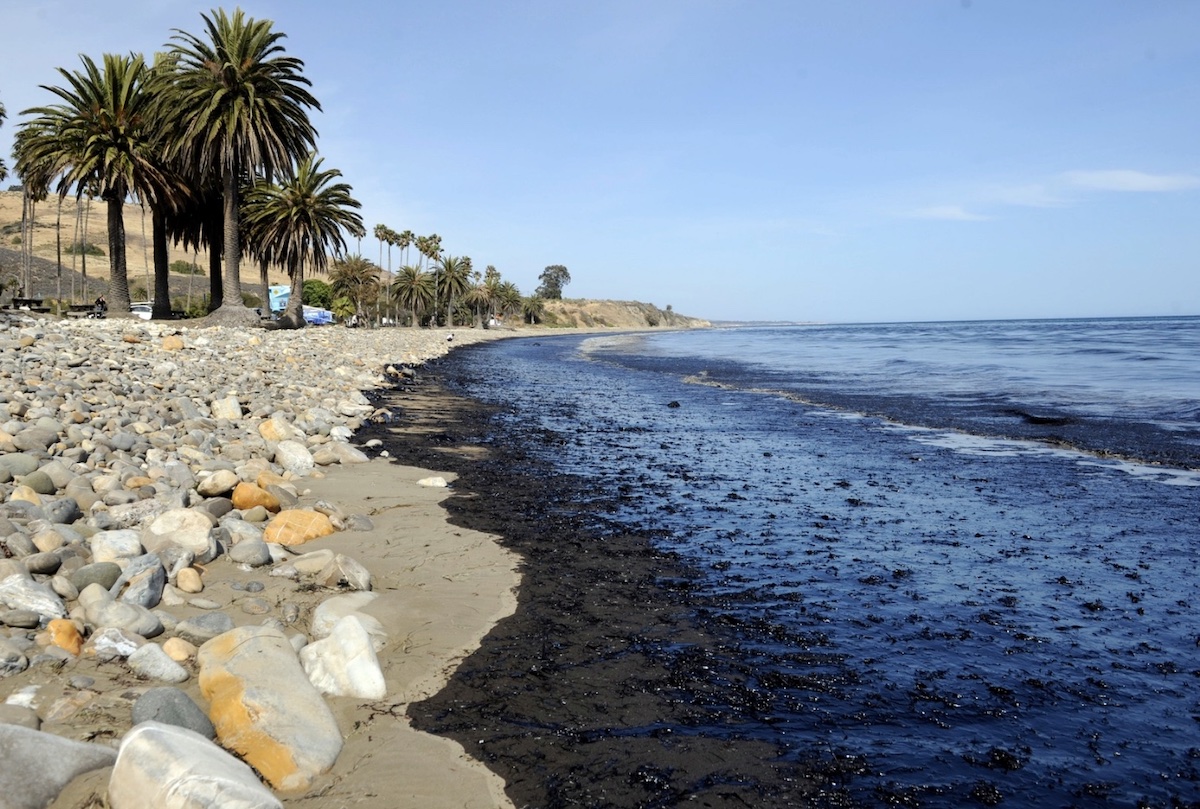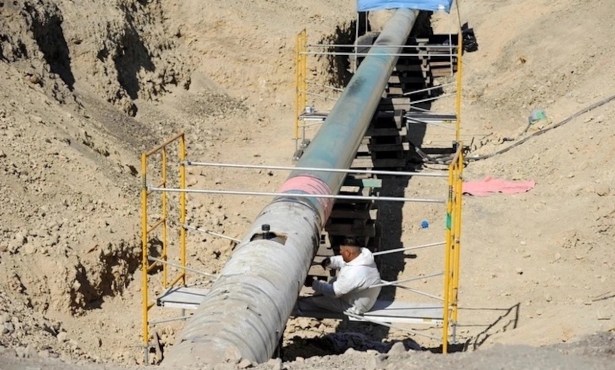Two Santa Barbara Lawsuits over 2015 Refugio Oil Spill
Pipeline Company Pays $230 Million, Exxon Sues County

The seventh wedding anniversary is typically celebrated with gifts of copper and wool. But the seventh anniversary of Santa Barbara’s late, great 2015 oil spill off the Refugio coast — the second-worst in county history — has been marked by two massive legal developments that demonstrate just how much green there is burbling under all that black gold. After seven years of intense legal warfare, the property owners and fishing businesses that had been damaged by the 142,000 gallons of oil that gushed into the ocean finally agreed to a settlement with Plains All American Pipeline, the owners of that corroded pipeline, for $230 million.
At the same time, ExxonMobil sued the Santa Barbara County Supervisors in federal court for denying its request to truck oil from its Santa Ynez Unit, which has been landlocked and shut down since that Plains All American pipeline spill of seven years ago. ExxonMobil contended that the supervisors had abused their discretionary authority — “arbitrary,” “capricious,” “prejudicial,” and “unlawful,” ExxonMobil’s attorneys called it in legal papers — in denying its trucking request. “The Project denial was not based on any purported flaw or safety concern,” ExxonMobil attorneys argued, “but rather on the Board’s unofficial policy to oust oil commerce from Santa Barbara County.” Elsewhere in its legal papers, ExxonMobil charged the supervisors “improperly treated the consideration of the project as a referendum on offshore oil production.”
While the lawsuit was totally expected — ExxonMobil had vowed to sue before the supervisors voted 3-2 to deny on March 8 — what was surprising was some of the financial information alleged in the lawsuit. For example, ExxonMobil claims to have spent $100 million per year every year since the 2015 spill — just to keep its operation at Las Flores Canyon maintained at a functional level. Perhaps just as striking is that ExxonMobil has not seen fit to sue Plains All American even though the pipeline company’s criminal negligence — a Santa Barbara jury found it guilty of one felony and eight misdemeanor charges in connection with the spill — is most directly responsible for ExxonMobil’s massive loss of revenues.
Sign up for Indy Today to receive fresh news from Independent.com, in your inbox, every morning.
At issue legally is whether the supervisors relied upon “substantial evidence” when exercising their discretionary authority to deny the trucking permit. In this case, three of the supervisors found that trucking ExxonMobil’s oil to a refinery in Kern County — 15,000 trips per year along the steep and winding two-lane tarmac of Highway 166 — posed unacceptable perils to other motorists on what they described as an already hazardous highway. In reaching their conclusion, the supervisors relied on research done by interns with the Environmental Defense Center showing there had been eight oil truck accidents along the route proposed by ExxonMobil in the past 10 years. In addition, they’d heard from residents of New Cuyama, who cautioned that road rage was simmering just below the surface among too many drivers along Highway 166.
ExxonMobil dismissed such testimony as both anecdotal and speculative. As such, it did not rise to the level of “substantial evidence.” The traffic engineers who prepared the environmental impact report for the project concluded that the additional truck traffic would increase the risk along Highway 166, but only slightly. The increase, they found, did not rise to the level of being “significant.”
Supervisor Joan Hartmann, one of the three to vote against the trucking proposal, countered that if anyone was being “speculative,” it was ExxonMobil. The company, she stated, relied upon traffic studies that looked into the future to estimate spill probability. (The trucking would increase the risk of spill by one every 17 years.) Her conclusions — and that of her fellow supervisors — she stressed, were based on accidents that had actually happened already. “We looked at actual accident records,” she said.
Support the Santa Barbara Independent through a long-term or a single contribution.



